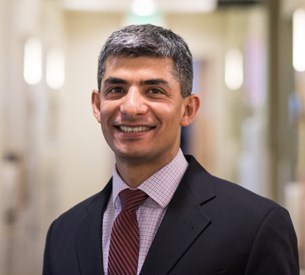Meeting
2016 ASCO Annual Meeting

University of Washington - Fred Hutchinson Cancer Research Center, Seattle, WA
Shailender Bhatia , Natalie Miller , Hailing Lu , Dafina Ibrani , Michi Shinohara , David R. Byrd , Upendra Parvathaneni , Natalie Vandeven , Rima Kulikauskas , Jan Ter Meulen , Frank J. Hsu , David M Koelle , Paul Ngheim
Background: MCC is an aggressive skin cancer with suboptimal therapies. Despite persistent expression of Merkel cell polyomavirus in ~80% of pts, MCC tumors are able to evade host immunity. G100 consists of glucopyranosyl lipid-A (GLA), a TLR-4 agonist, administered IT. In preclinical models, G100 activates dendritic cells, T cells and other effector immune cells, and triggers local and systemic (abscopal) anti-tumor responses. G100 may overcome immune suppression in the MCC TME and lead to effective systemic anti-tumor responses. Methods: 10 MCC pts were enrolled to receive IT G100. Pts with loco-regional MCC (Cohort A) received G100 5 µg IT on days 1, 8 followed by surgery & radiation (RT) starting in week 4. Pts with metastatic disease (Cohort B) received G100 5 µg IT on days 1, 8 and 22 of a 6-week long cycle 1. For cycles 2-4, pts could receive 8 Gy RT to the injectable tumor on day 0 followed by G100 on days 1, 8, 15, 22, 29, and 35. Pre- and post-treatment tumor biopsies and blood were collected for immune monitoring. Results: All 10 pts (3 cohort A; 7 cohort B) completed 1 or more cycles of IT G100. Treatment-related AEs were mostly grade 1/2 (injection site reactions). 2/3 Cohort A pts with stage IIIB MCC are recurrence-free at 23+ and 19+ months (mo); one of these pts had pathologic CR after 2 G100 injections. Of 7 pts with stage IV MCC in Cohort B, 2 pts had PRs and are progression-free at 14+ and 13+ mo and 5 pts had PD. Multispectral immunohistochemistry of tumor biopsies from responders demonstrate increased inflammation with infiltration of CD8 and CD4 T cells following IT G100; T-cell receptor sequencing supports infiltration of new clonotypes rather than enrichment of existing ones. RNA expression analyses exhibit global activation of immune-related genes within the TME, including pro-inflammatory chemokines, cytokines, and PD-L1. Conclusions: In this pilot human trial in MCC pts, IT G100 had acceptable safety and encouraging clinical efficacy. Treatment induced inflammatory changes in the TME. The inflamed TME with PD-L1 expression after IT G100 suggest potential for synergy with inhibitors of the PD-1/PD-L1 axis. Clinical trial information: NCT02035657
Disclaimer
This material on this page is ©2024 American Society of Clinical Oncology, all rights reserved. Licensing available upon request. For more information, please contact licensing@asco.org
2016 ASCO Annual Meeting
Poster Discussion Session
Developmental Therapeutics—Immunotherapy
Developmental Therapeutics and Translational Research
Vaccines
NCT02035657
J Clin Oncol 34, 2016 (suppl; abstr 3021)
10.1200/JCO.2016.34.15_suppl.3021
3021
343
Abstract Disclosures
2023 ASCO Annual Meeting
First Author: Tsz Lun Yeung
2023 ASCO Annual Meeting
First Author: Miguel Angel Villalona-Calero
2022 ASCO Annual Meeting
First Author: João Carlos Cardoso Alonso
2020 ASCO Virtual Scientific Program
First Author: Maud Rijnders